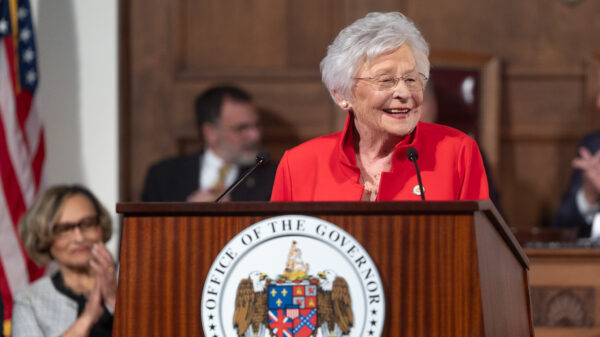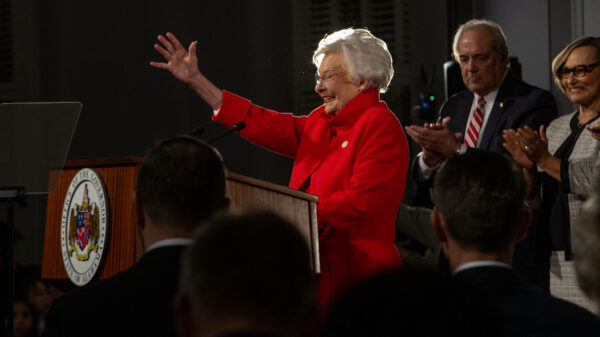By Lieutenant Governor Kay Ivey
MONTGOMERY, Alabama (September 27, 2013) — As an elected official, I am committed to seeing that our state government works as efficiently and effectively as possible. The hard-working taxpayers of Alabama expect nothing less. One of the ways that we can do that is to streamline and modernize our laws. The Alabama Constitution of 1901, our most fundamental law, is the longest state constitution still in use and has hundreds of amendments. In many ways, it needs updating.
In April 2011, Senator Del Marsh, our Senate President Pro Tempore, sponsored legislation to create the Alabama Constitutional Revision Commission. The Commission was tasked with updating several constitutional articles that are antiquated, unnecessary, or duplicative. Commission members deliberated topics such as home rule, removing racist language, and the powers and duties of the Executive Branch.
Once formed, the group chose as its chairman former Governor Albert Brewer, who also served as Alabama’s Lt. Governor and Speaker of the House during his career in public service. Rep. Paul DeMarco (R-Homewood) served as the Commission’s vice-chairman, and sixteen other distinguished members appointed by Governor Robert Bentley, Speaker Mike Hubbard, and Senator Marsh provided their expertise and counsel. The Alabama Law Institute, a legislative agency which serves to clarify and simplify Alabama law, provided its highly respected research and writing services to the Commission as well.
After formulating its recommendations, the Commission sends them to the Legislature, where they are debated as constitutional amendments. Once the Legislature approves an amendment, it goes to the people for a vote. Some of the Commission’s recommendations have already become law, while others are awaiting debate in the next legislative session.
The Commission met diligently over the last two years, reviewing our constitution with a fine-tooth comb and careful eye. Commission members completed that task at their last scheduled meeting on September 25th. My office was fully engaged in the process.
The Commission represented a pragmatic approach to reform. While some have asked for a constitutional convention to rewrite the entire document at once, I believe that approach puts too many eggs in one basket. Even if a convention were able to agree to a single document that addressed all the issues, that document would then have to meet the approval of voters in an up-or-down vote. Any single issue in that proposed constitution, no matter how big or small, could cause voters to vote down the whole body of work.
An article-by-article approach, however, allows us to isolate issues so that no single provision can dominate the proceedings. The simpler, more straightforward updates can be taken care of in a timely manner, and more complex or controversial issues can be dealt with individually. If the voters ultimately decide that they do not want a particular section of the Constitution changed, they can make that determination without sacrificing all the other proposed updates.
Constitutional reform has often been discussed in vague, generalized terms, but the Constitutional Revision Commission gave us the opportunity to talk about specific proposals. Meeting every few weeks, the Commission pored over the state’s constitution and debated even the smallest changes, down to the placement of individual words. It was sometimes tedious work, but much needed. I was encouraged to see all sides of the issues at the table, involved in the discussions, and working toward a solution.
Improving our constitution is an important step to building a better Alabama. I applaud the Commissioners, the Alabama Law Institute, and the members of the public who assisted them in this ambitious task, and I look forward to presiding over the Senate’s deliberation on their remaining proposals.
















































